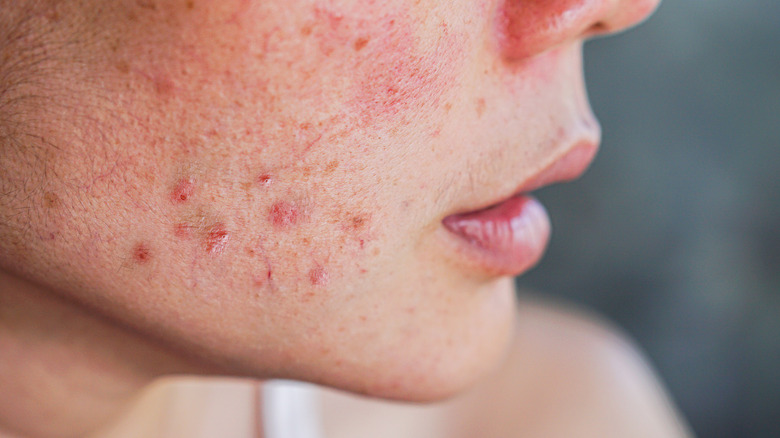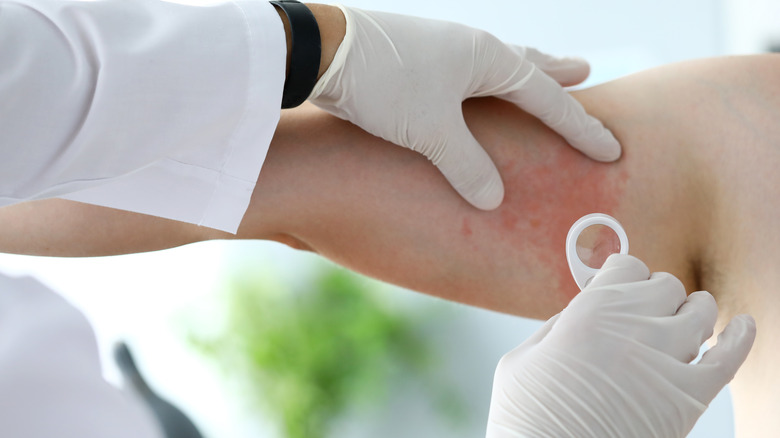What Is Hidradenitis Suppurativa?
Skin conditions can be incredibly stressful, especially when they cause painful, hard bumps beneath the skin's surface. While small lumps and blackheads may seem like signs of acne, there may be other reasons why such symptoms are occurring.
If you've tried to clear your skin with over-the-counter acne products unsuccessfully, you may be experiencing a painful skin condition called hidradenitis suppurativa (HS), also known as acne inversa (via WebMD). This condition affects the skin's hair follicles and sweat glands. Problems arise when pus forms beneath the skin's surface, creating pockets that can become infected and scarred as a result. With HS, bumps can occur on several different body parts and at multiple locations at once.
Like acne, HS often happens in one's teens and 20s. However, HS is not a result of poor hygiene, and it can last for years. It also tends to worsen over time without proper treatment, according to Mayo Clinic. Fortunately, one can take steps to improve their skin's health and mitigate the physical and emotional toll.
Treating hidradenitis suppurativa
It's important to seek medical care if you suspect you have HS. A telltale sign of the condition is where the bumps occur on the body. Often with HS, the affected skin is usually located in the underarm area, the buttocks, groin, or breasts (via Mayo Clinic). Because these are areas where skin tends to rub together, it can be painful to move. If the affected area doesn't show improvement within a couple of weeks and appears in several areas of the body at once, you may want to call your doctor.
Your doctor will likely examine your skin, discuss your symptoms, and ask about your family history, according to WebMD. If your doctor diagnosis you with HS, they will also likely determine what stage of the condition you're in, based on the severity. They may then recommend a combination of treatment options, including over-the-counter anti-inflammatory medications, topical compresses, antibiotics, corticosteroids, and even hormone therapies.


